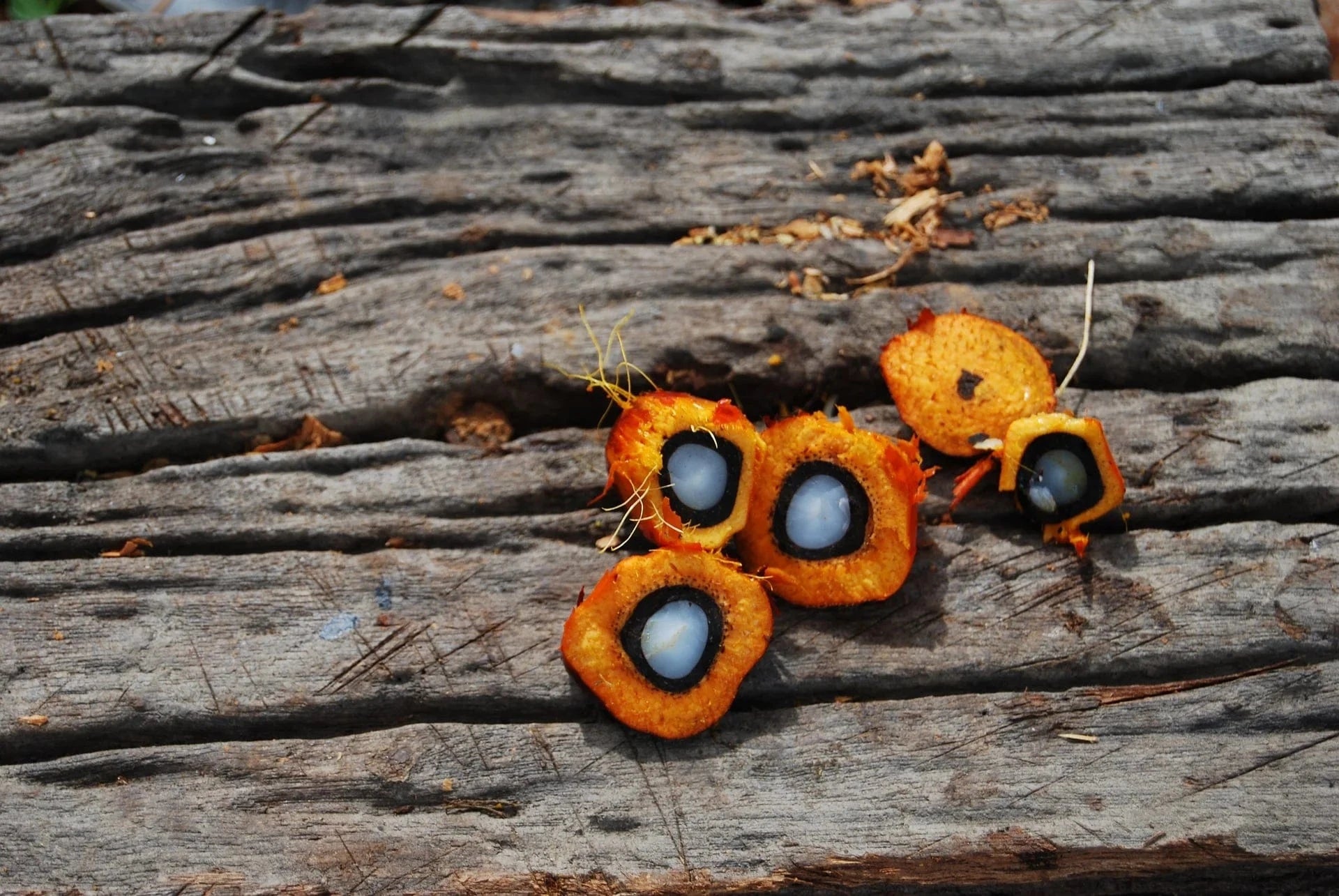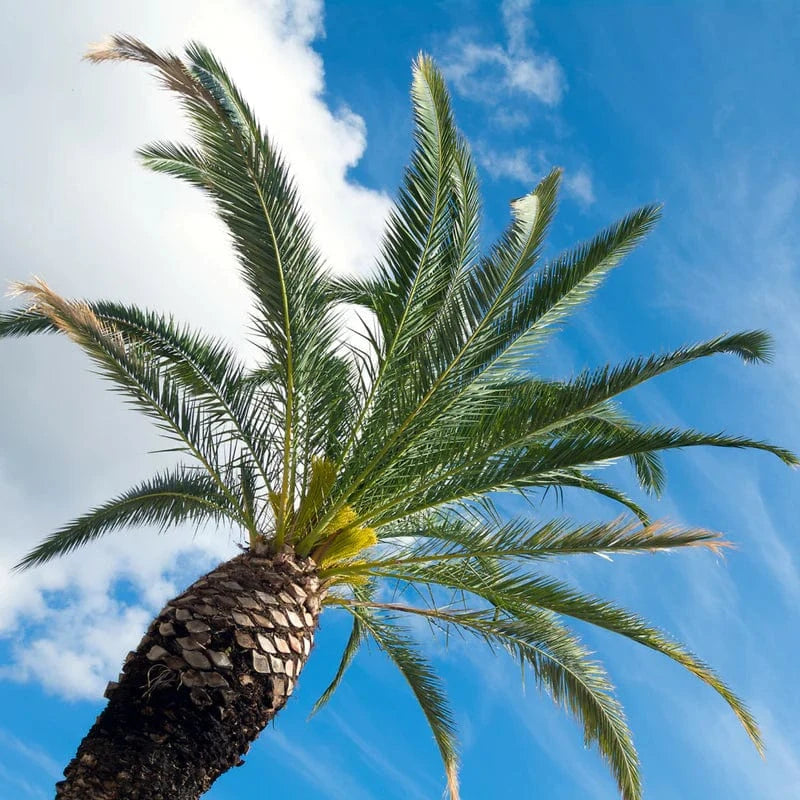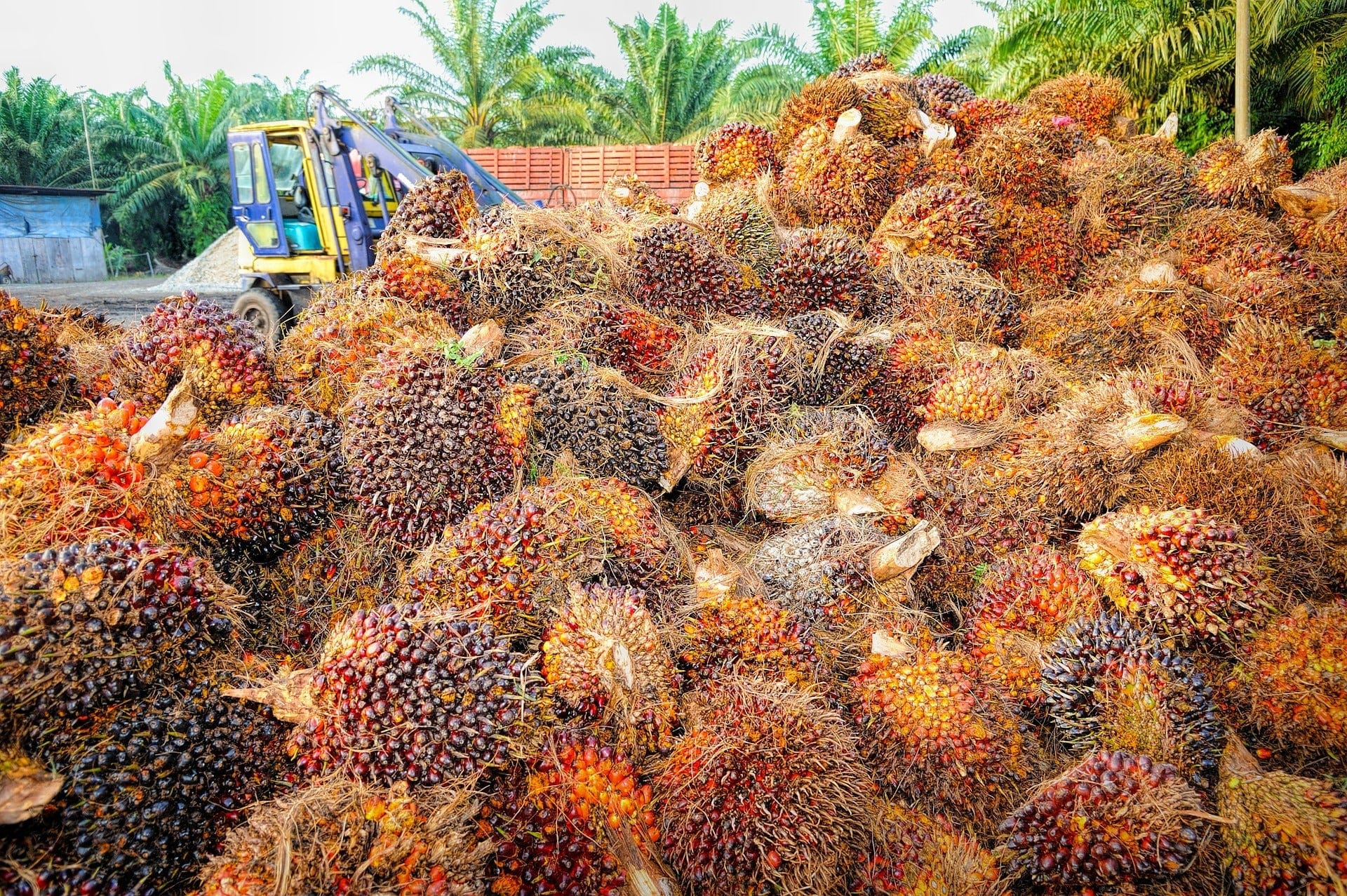
Click here to support reforestation
with your company.
Get news, updates, & event Info delivered right to your inbox:
WHAT is palm oil?
An edible vegetable oil that is extracted from the fruit of the oil palm tree, palm oil is grown on vast plantations in Asia, Latin America, and Africa. These plantations are created by clearing tropical rainforests, which are some of the most biodiverse ecosystems in the world. According to USDA data, In 2023/2024, Indonesia and Malaysia alone produced 83% of all palm oil.

WHAT is palm oil used for?
Similarly to coconut oil, palm oil is semisolid at room temperature and is a staple cooking oil in many parts of the world, especially Africa and Southeast Asia.
On an industrial scale, oil palm (elaeis guineensis) is grown for three primary uses:
- Palm oil, which is extracted from the fruit of the tree. This oil is used to make soap, cosmetics, candles, biofuels, lubricating greases, and in the processing of some metals.
- Palm kernel oil, which is extracted from the tree's seeds. This is used in food products, including margarine, ice cream, chocolate, cookies, and bread. It is also used in pharmaceutical products.
- Cake residue, a byproduct of extracting palm kernel oil. This is used in cattle feed.

Palm Oil and Deforestation
The demand for oil palm end-products has increased rapidly in recent decades, establishing it as a ubiquitous ingredient in around 50% of supermarket products.
The USDA Foreign Agricultural Service found that in 2023/2024, 79.53 million metric tons of palm oil were produced, about a 2% increase from the previous year. This represents around 35% of the world’s vegetable oil production.
Due to the productivity of the oil palm tree, and the properties of palm oil, it remains an important product for global food security and economic development.
But the ubiquity of this useful material comes at a price. The expansion of oil palm plantations is major driver of deforestation and habitat degradation in areas of tropical Asia and Central and South America.

Is Sustainable Palm Oil the Answer?
Simply banning palm oil, or shifting to other vegetable oils, is not a sustainable option for addressing this issue. The oil palm tree produces up to 9X more oil per unit than other major oil crops (such as soy, sunflower, and rapeseed). As global demand for vegetable oil rises, the high productivity of oil palm trees makes them critical to meeting the world's needs.
However, the intense degradation and deforestation associated with commercial palm oil production needs to be addressed. Policies and programs are needed to halt the clearing of native tropical forests for new plantations. Companies can support policy change by only sourcing sustainable palm oil for their products — and consumers can nudge them to do so.
Existing oil palm plantations should also be encouraged to manage their land more sustainably using proven and effective strategies, to reduce their impact on surrounding biodiversity.
Interested in learning more about how your diet could be affecting the planet? Check out our blog post on how to adopt a more sustainable diet, and consider planting a tree with us today!
Click here to support reforestation
with your company.
Get news, updates, & event Info delivered right to your inbox:
Related Posts
Plant Your Resolution: Making a Global Impact With The Grove
01/01/2026 by One Tree Planted
Trees & Oxygen: How They Produce It, How Much They Make, and Why It Matters
30/12/2025 by One Tree Planted
Amazon Rainforest Facts & Why It Matters for the Planet
25/12/2025 by One Tree Planted
Popular On One Tree Planted
How to Reduce Waste: 21 Practical Zero Waste Tips for Everyday Living
23/12/2025 by Meaghan Weeden
Inspirational Quotes About Trees
16/12/2025 by Meaghan Weeden
The 9 Oldest, Tallest, and Biggest Trees in the World
11/12/2025 by One Tree Planted
Fundraising Disclosures

Be Part of the Restoration Movement
The Grove is more than just a monthly giving program: it's a vibrant community of individuals who are dedicated to reforestation and environmental restoration on a global scale.





